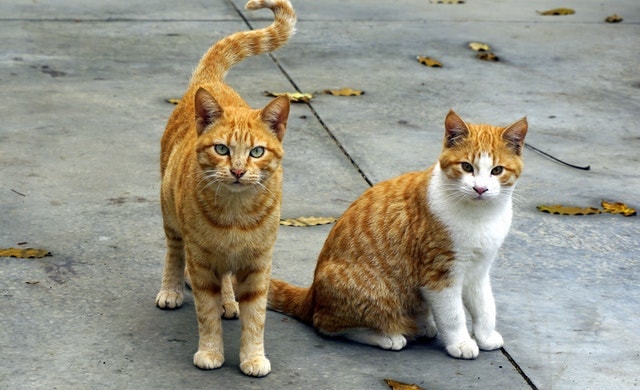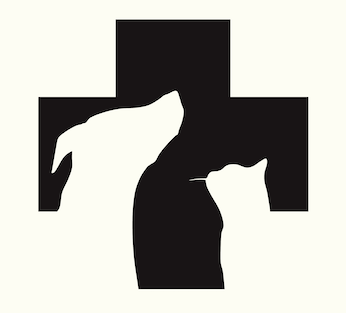Weeknight and 24 hr weekend emergency service
Your Cat Can’t Pee?
What do you do if your cat can’t pee?
If your male cat can’t urinate this is an emergency! Initially you may notice them straining to urinate, digging lots of holes, painful urination (crying) and trying to urinate in places they wouldn’t normally. This may mean they have a blockage, inflammation in their bladder making it painful to urinate or their urethra might be in spasm.
A complete blockage can occur in the tip of the penis with either crystals (like fine sand) or a mucous plug. This means the cat can’t urinate at all. They may cry, move restlessly, hide, loose their appetite and become lethargic. They will have a very large painful bladder and they will likely cry if you try and pick them up. This is potentially fatal if left more than 12 hours. If you suspect any of these signs in your cat you should call your vet and we will advise you to bring your cat in straight away.
Supermarket Food!
Cats that are more at risk to developing this problem are cats that eat solely supermarket dry food , overweight cats, more than one cat in the house or if the cat is nervous or stressed. This is predominantly something that occurs only in male cats but it is possible to see in a female. The incidence is higher in the winter months, this is thought to be because cats are less likely to want to go outdoors to pee and subsequently hold on and their urine becomes more concentrated.
If you bring your cat in and the blockage has been caught early they are less likely to have complications. Some cats that have been left in this condition for a while are very unwell and can have damaged kidneys, be in shock and have a very high potassium level (potassium is an electrolyte, if it is too high it is toxic to the heart muscle). These cats are very critical patients.
Blood Work
Blood work is mandatory to check the condition of cats and come up with a treatment plan to stabilise these cats prior to unblocking them. We always give a pain relief injection straight away and often put a needle into the bladder to remove some urine which will relieve some of the pressure to make the cat more comfortable. Then we will come and discuss with you the course of action. Your cat will need to go onto intravenous fluids . Once they are stable (which means when we are happy with their heart rate and rhythm, their blood pressure, their gum colour and a few other parameters) we will give them a general anaesthetic to pass a catheter up their urethra to relieve the obstruction. If they have a high potassium level we need to give them a drug that will protect the heart muscle while they are under anaesthetic.

Cystotomy
Passing the catheter can be simple if the blockage is small (sort of like having fine sand in the urine) or mucus plugs (which can be caused from bladder inflammation) but sometimes it can be difficult and we have to flush out the urethra with saline as we try to dislodge any obstruction. Once the obstruction has been removed and the bladder flushed we leave a urinary catheter in the urethra and stitch it to the outside of the cat so it doesn’t fall out and connect the catheter up to a long line with a bag at the end. This way we can collect and measure how much urine the cat is making. The cat is also still on the IV fluids so if he isn’t making enough urine the IV fluid rate can be turned up. We also take an xray of the cats bladder to check that the catheter is in the right spot and to check if there are any uroliths (which are small stones in the bladder, these are usually less common). If there are stones we will have to do surgery to open up the bladder to remove them from the inside. This is called a cystotomy.
To summarise, if your cat (usually a male, and often they are overweight) is trying to pee, or is yowling (a deep meow), or is repeatedly digging holes in the litter or garden you should take them to a vet ASAP.


Recent Comments